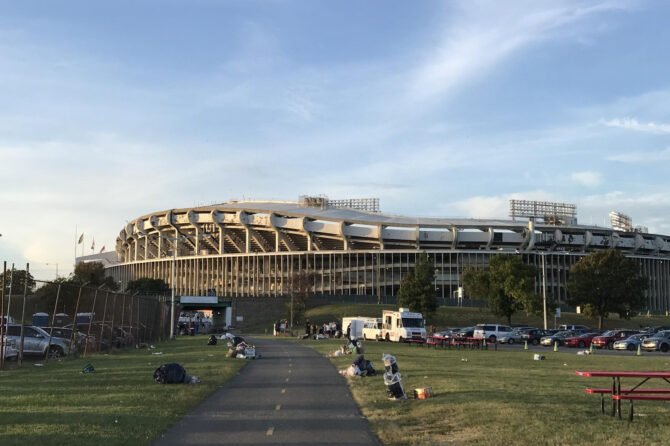WASHINGTON POST: Homeless activists gather Monday to protest outside the U.S. Supreme Court as the justices heard City of Grants Pass v. Johnson, a case centered on an Oregon city’s laws on people camping and sleeping on public property.
Hundreds of demonstrators gathered Monday outside the U.S. Supreme Court, waving signs that read “Housing Not Handcuffs” and “Housing Dignity” as they protested moves to legally penalize homelessness as the justices heard oral arguments on a case that experts say could change how the country treats its homeless people.
At the center of the court case is Grants Pass, Ore., a city of 40,000 that in 2013 began aggressively enforcing anti-camping legislation, with fines and possible jail time, aimed directly at the area’s unsheltered communities. In 2022, the U.S. Court of Appeals for the 9th Circuit affirmed a lower court’s ruling that Grants Pass’s actions violated the Constitution’s Eighth Amendment prohibition of cruel and unusual punishments.
“Can you imagine anything more cruel and usual than throwing somebody in jail for having a blanket?” Jesse Rabinowitz, the National Homelessness Law Center’s communications director and the emcee for Monday’s demonstration, told the crowd outside the court. “Does that seem fair to you?”
In the morning chill, hundreds of demonstrators lay near the Supreme Court steps under emergency blankets that caught the sun — a symbolic nod to the $295 ticket for sleeping outside with a blanket that Grants Pass’s authorities were handing out, Rabinowitz said in his remarks before Monday’s crowd. Many of the protesters had come from New York City, Philadelphia and elsewhere to join the rally in D.C.
The arguments before the country’s highest court come as homelessness policy nationwide has become electrified. Last year the country saw a spike in homeless numbers, the fallout from record inflation and the end of covid-era eviction protections and rent relief. Conservative activist groups have since mobilized in state legislatures to pass aggressive criminalization laws similar to Grants Pass’s approach. Housing activists have countered by advocating about spiking rents and a lack of affordable housing.










